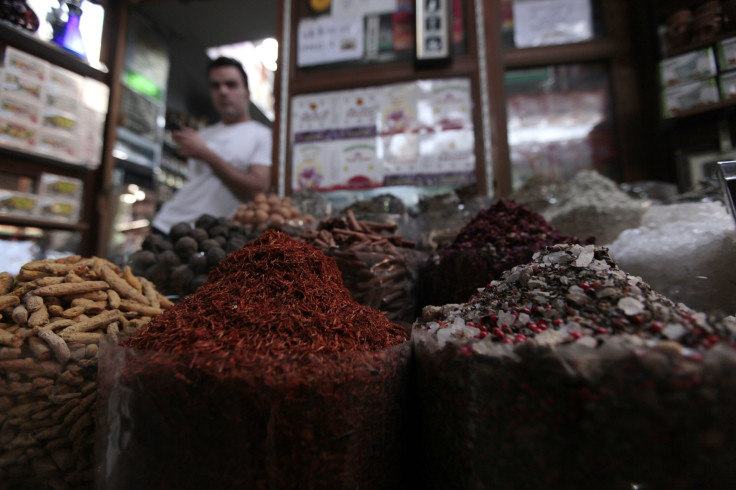Contaminated Spices: Your Spice Rack May Be Full Of Salmonella, Insects, Excrement And Other ‘Filth,’ Says FDA

The Food and Drug Administration said that as much as 12 percent of imported spices imported during a three-year period were contaminated with “filth,” such as salmonella, insect, excrement and hair.
The report from Wednesday referred to a study of spice shipments from 2007 to 2010 that found spices contaminated with “Salmonella, Bacillus spp. (including Bacillus cereus), Clostridium perfringens, Cronobacter spp., Shigella, and Staphylococcus aureus…insects (live and dead whole insects and insect parts), excrement (animal, bird, and insect), hair (human, rodent, bat, cow, sheep, dog, cat and others), and other materials (decomposed parts, bird barbs, bird barbules, bird feathers, stones, twigs, staples, wood slivers, plastic, synthetic fibers and rubber bands)."
The FDA study -- conducted after nearly 2,000 spice-related illness outbreaks were reported since 1973 -- focused on shipments coming from India, Mexico, Thailand and Vietnam. In 2009 and 2010 alone, black pepper and red pepper from India, Vietnam and China in salami caused hundreds of illnesses.
The report cited more than 80 different types of salmonella, adding that imported spices were twice as likely as other inspected foods to be contaminated. The FDA said that in that three-year period, 749 shipments of spices were not allowed to enter the U.S. because of salmonella ducontamination, and 238 shipments were denied because of “filth.”
The Associated Press reported most all of the spices eaten in the U.S. are imported. However, the FDA warned that the majority of spices come from “very small farms where farm animals are used to plow, crops are harvested by hand, and spices are dried in open air” where there’s “potential for animal, bird or human contamination.” The study concluded that the contaminations likely happened because of “unhygienic conditions, including the failure to limit animal and insect access to food and not taking steps like irradiation to kill any potential pathogens,” AP reported.
The FDA said some spices that were found to be contaminated at the U.S. border were later cooked or treated to eliminate the salmonella or “filth.”
According to the agency, the small amounts of spices typically eaten in a meal is why consumers “have less of a chance of getting sick” from them than, say, contaminated fruits or vegetables.
Michael Taylor, FDA's deputy commissioner for foods, said the agency is "not recommending that consumers stay away from spices,” but he noted that adding spices to food before it is cooked reduces the chance of sickness.
© Copyright IBTimes 2024. All rights reserved.












